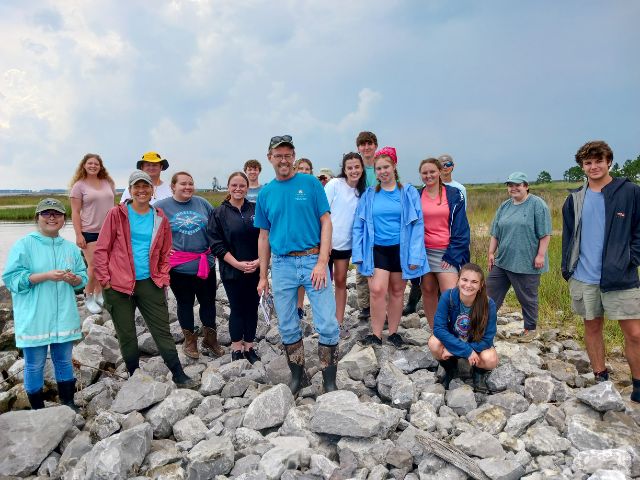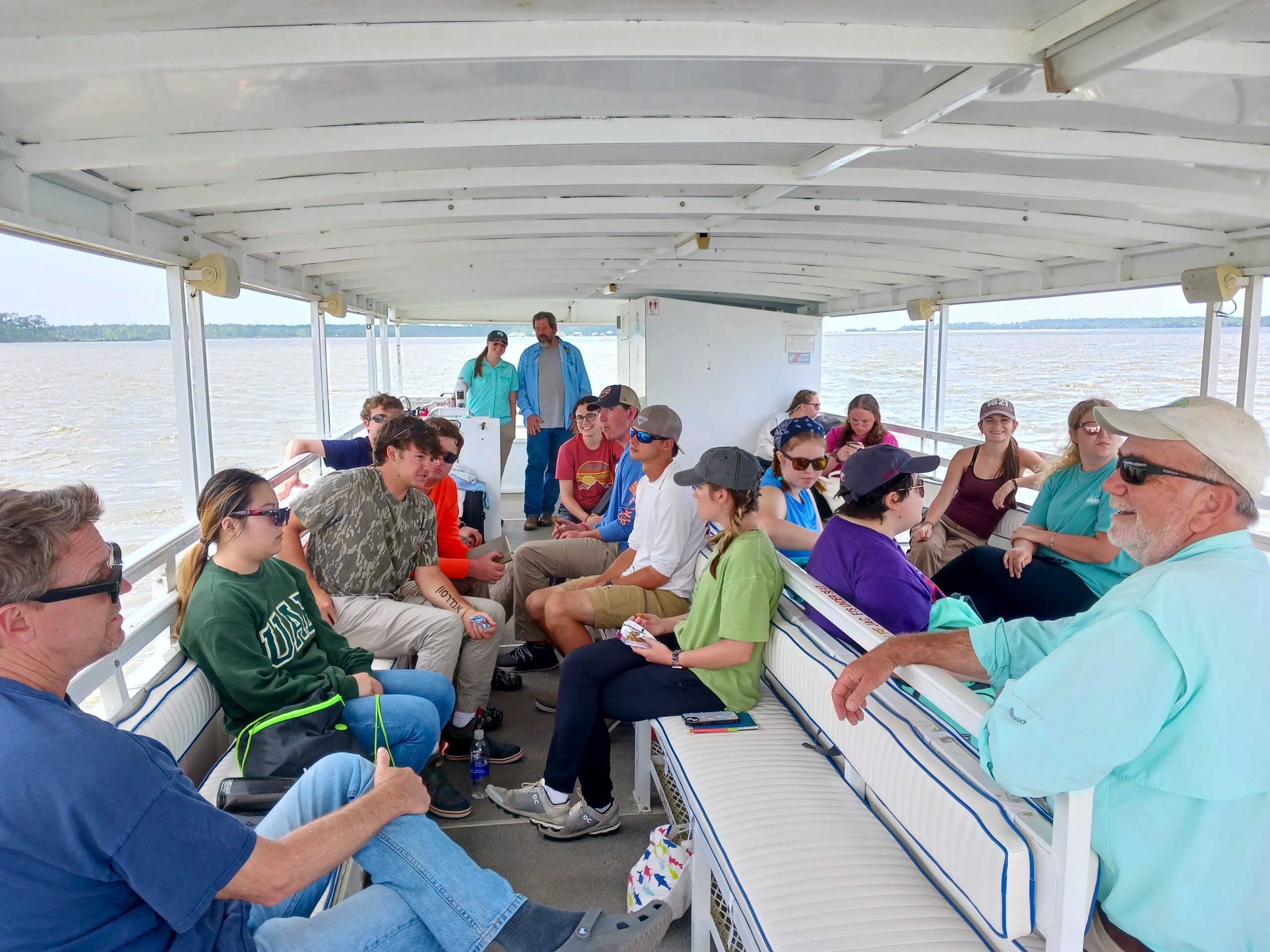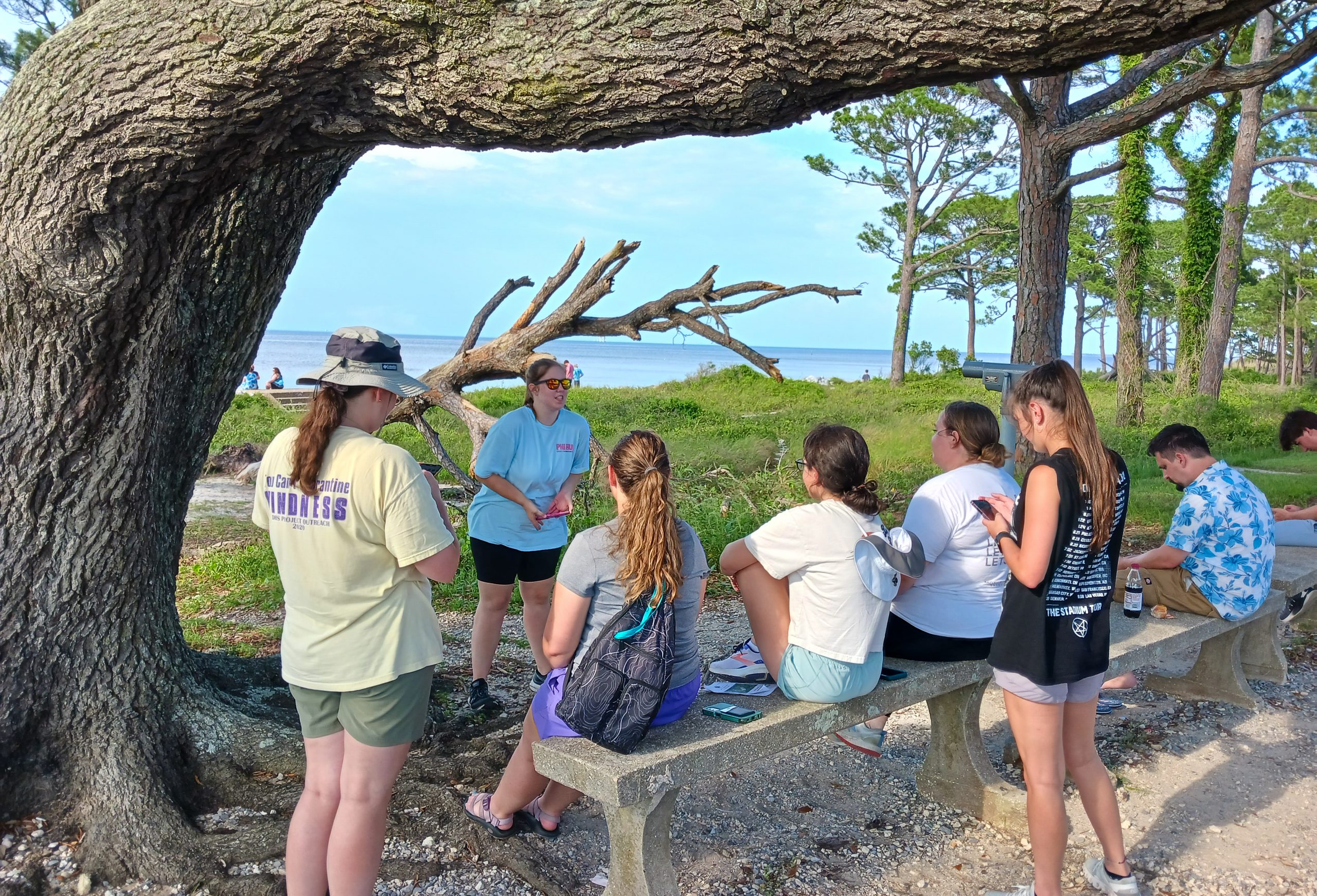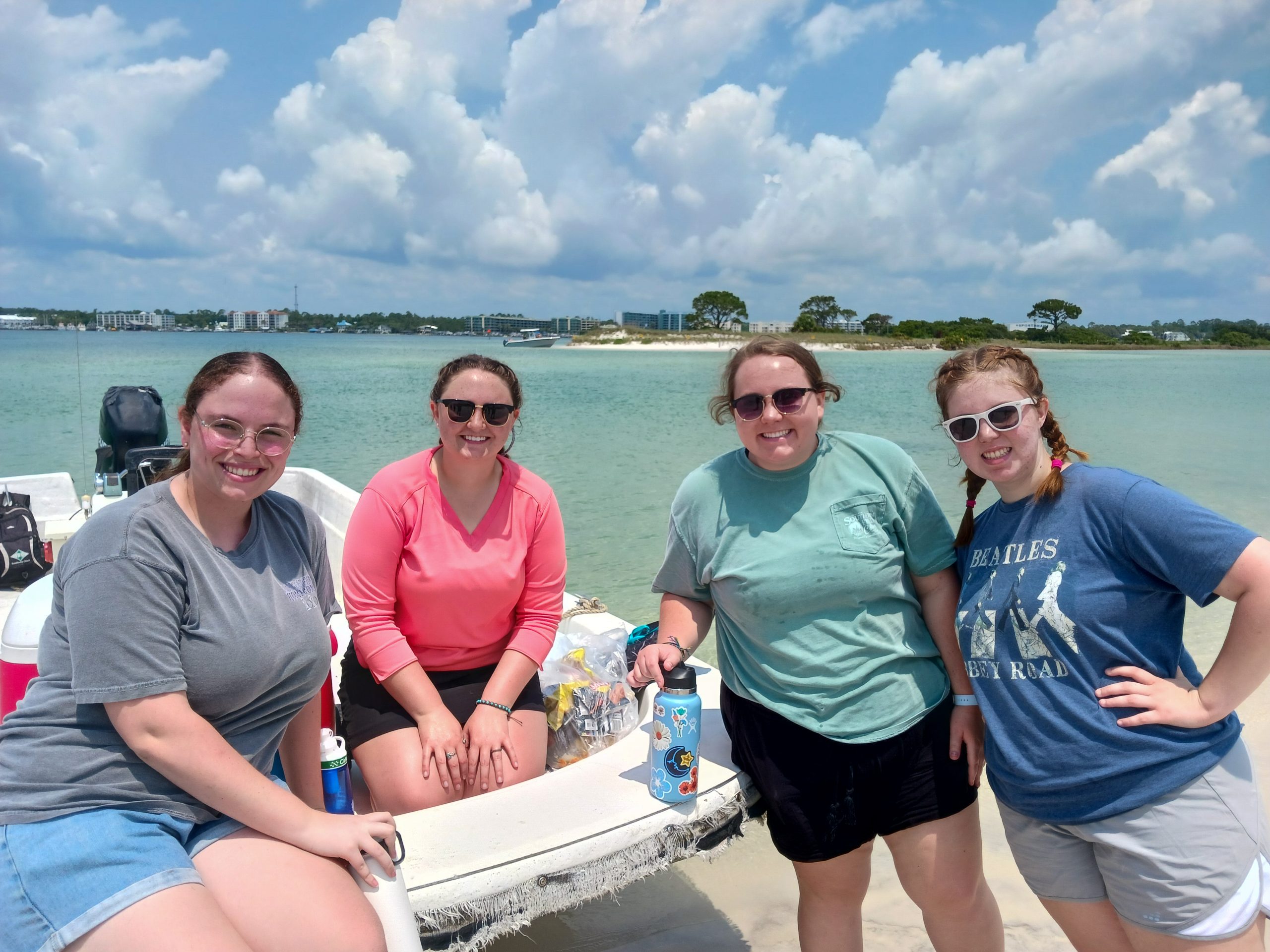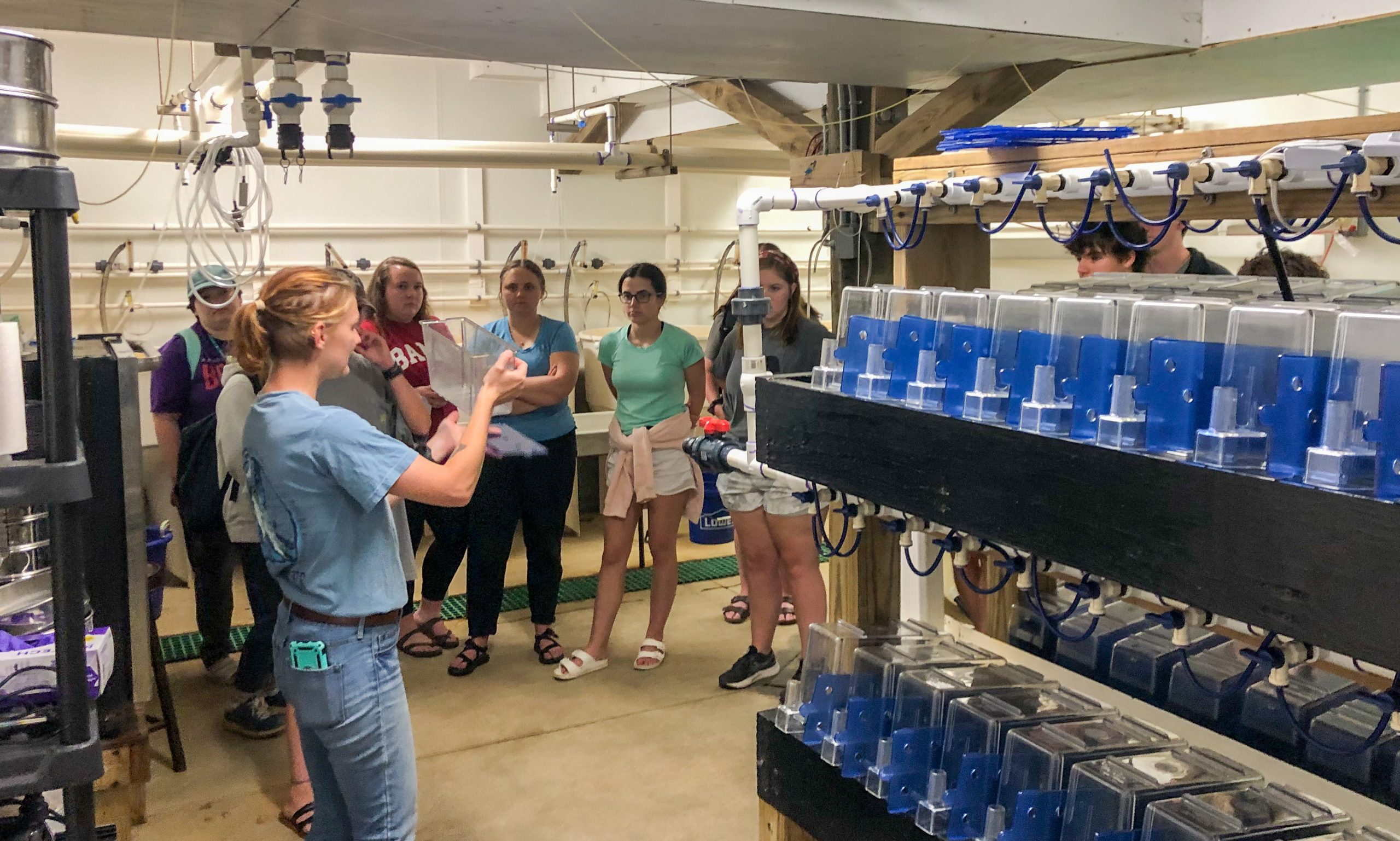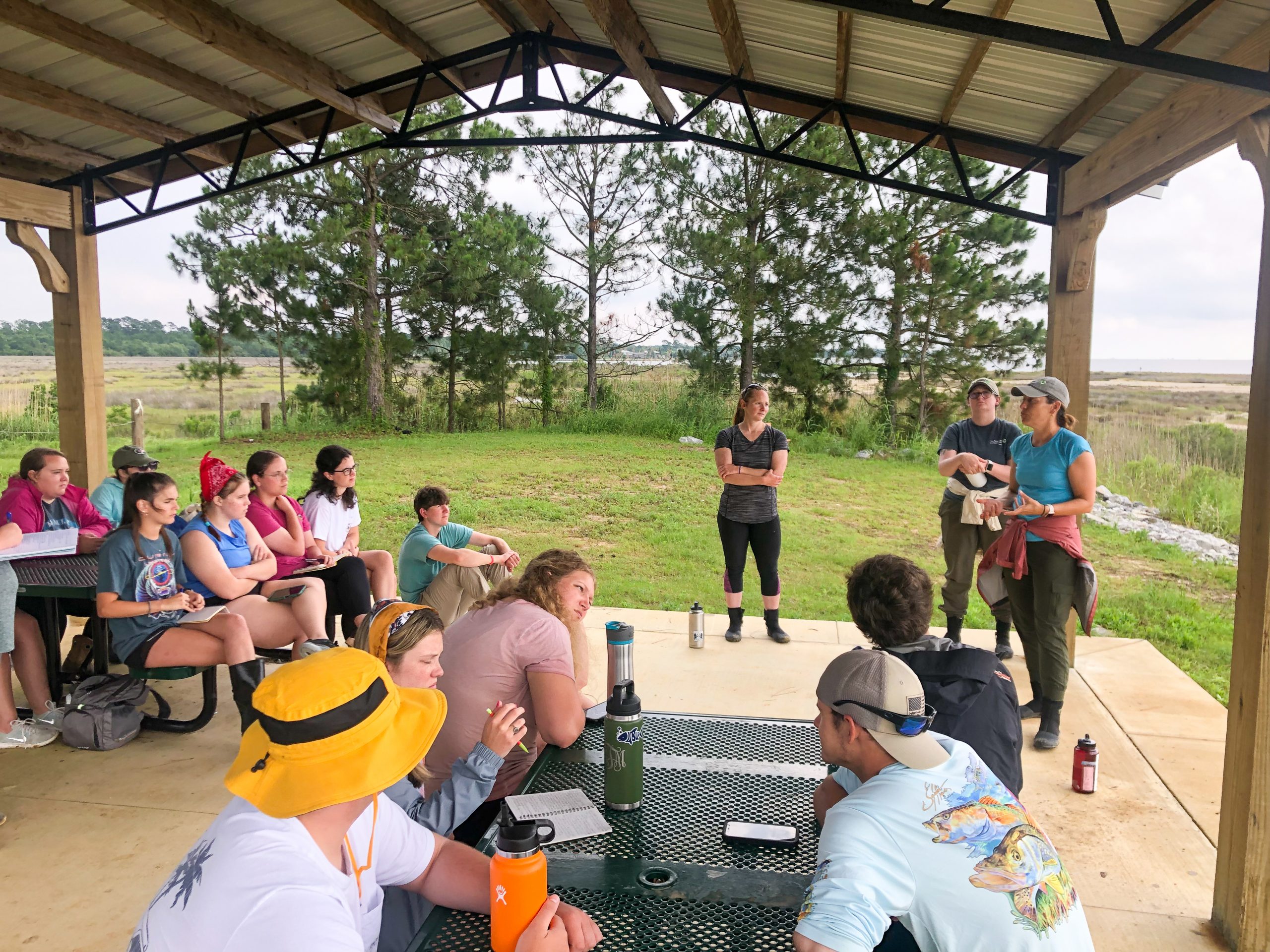Christopher Anderson, a professor of coastal wetland ecology in the College of Forestry, Wildlife and Environment at Auburn University, led a two-week Coastal Zone Management course at the Dauphin Island Sea Lab this May. The course provided students with a comprehensive review of coastal environments and the challenge of protecting these areas and their natural resources.
Coastal Zone Management (NATR 4240) drew 15 upper-level undergraduate students, with approximately half of them representing Auburn University and the remaining hailing from various universities across Alabama. The course, a requirement for the recently launched Coastal Management minor offered by the college, provided a multi-disciplinary learning experience for aspiring coastal managers.
Throughout the course, students visited various sites and engaged with a variety of local resource managers and agencies who acted as guest speakers, hosted field tours, and shared their professional expertise. For instance, coastal managers Katie Baltzer, Mary Kate Brown and Rebekah Farmer from The Nature Conservancy (TNC) led students on a field assessment of the Lower Perdido Islands, a series of small islands in lower Perdido Bay. The TNC managers discussed the challenge of minimizing impacts from heavy boater use while protecting and restoring important habitats on and around the islands.
After their field review of the islands, students evaluated recent designs formulated by students in Biosystems Engineering under the instruction of Anna Linhoss, as well as Landscape Architecture under the instruction of Rob Holmes. The designs were collaborative student efforts, with input from TNC, aimed to stabilize and protect the islands in question while still providing recreational use. This initiative was funded by a grant awarded by the National Academy of Sciences, Engineering and Medicine – Gulf Research Program and supported student opportunities to undertake comprehensive coastal design and assessment endeavors.
The Coastal Zone Management course included several other field trips, offering students a hands-on learning experience in various coastal environments. Will Underwood and Amy Hunter from the Alabama Department of Conservation and Natural Resources led an excursion into the Mobile-Tensaw Delta, where students learned about conservation efforts and ongoing research in the area. At Bayou La Batre, students had the opportunity to evaluate the Lightning Point marsh restoration area with the guidance of TNC. The class also visited Weeks Bay, where Johanna Gertsch, Scott Phipps and other staff of the Weeks Bay National Estuarine Research Reserve provided a tour that focused on shoreline management and the challenges associated with coastal preservation.
“The Coastal Zone Management course at Dauphin Island Sea Lab was a transformative experience for our students,” Chris Anderson remarked. “It allowed them to witness firsthand the complexities of managing our coastal environments and the critical role managers play in supporting the sustainability of these ecosystems. The collaboration with local organizations and agencies, coupled with the immersive field trips, created a fantastic learning experience that provided a great overview of pertinent coastal issues and the professionals working toward solutions.”
While the course is a requirement for the Coastal Management minor, it is open to all Auburn University students as well as students from other universities across Alabama. The College of Forestry, Wildlife and Environment at Auburn University invites students who are passionate about coastal conservation and management to join in the commitment to preserving and protecting our coastal resources.
For more information about the Coastal Management minor offered by the College of Forestry, Wildlife and Environment, please visit https://cfwe.auburn.edu/programs/minors/.
(Written by Allison Killingsworth)

